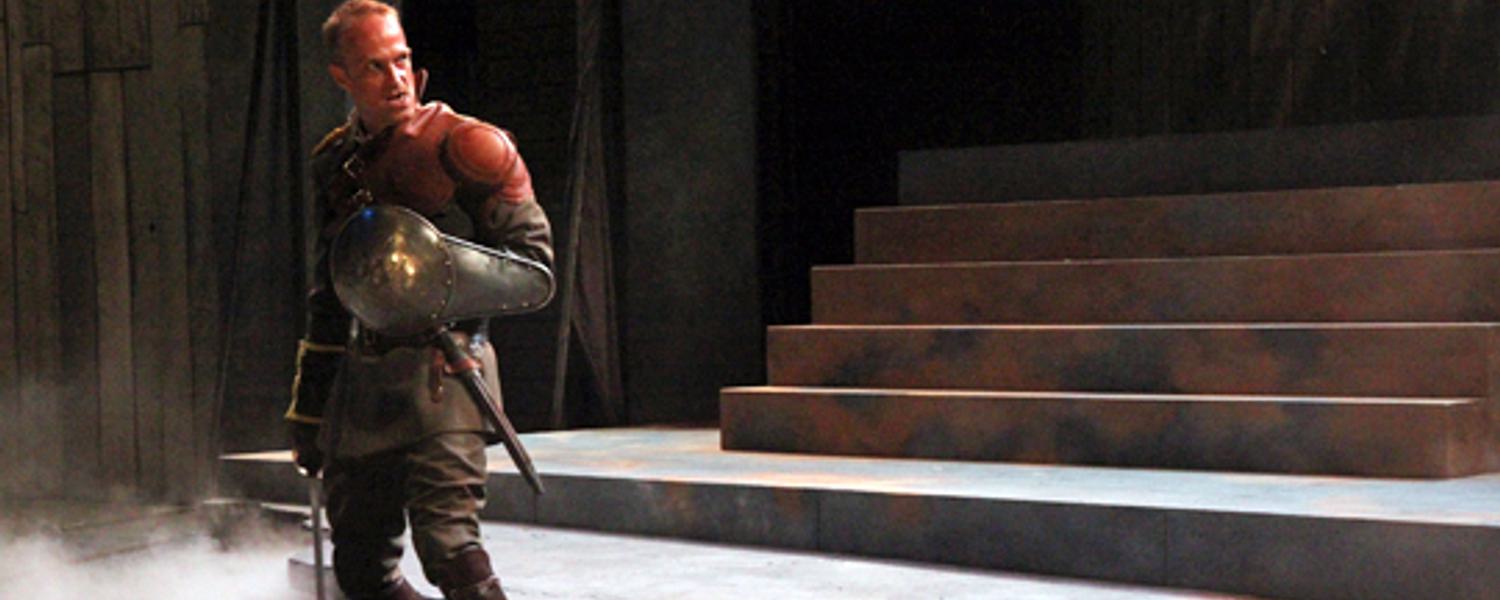
APT chats with director Jim Devita and actor James Ridge about Richard III.
APT: Can you describe Richard III in a couple sentences?
Jim DeVita: That is probably one of the hardest questions we get. It's a huge play, it's complicated. The gist is, it's about one man at the end of 30 years of civil war in England, and they're just about on the verge of a lasting peace, when there's one man in the Kingdom - Richard Gloucester - who wants to be king. The story is this man's journey and attempt for the crown and the means that he'll go through to get it.
APT: And he's not a very nice fellow. Or is he? Jim Ridge, could you tell us a little about Richard?
James Ridge: He is not somebody you would have to dinner, or bring home to mom. He's, I was just thinking recently, who is he like? He's really all over the news right now. Look at politics, and look at Wall Street. It's the person who just keeps going for what they want-and nobody stops them. So they just keep going after it, and never mind the consequences. In Richard's case, the crown is something he wants and he'll go through any lengths to get it. And nobody stops him, so he just keeps pushing the boundaries. And in retrospect that seems, I don't know, evil. If not evil, certainly wrong. But nobody stops him, so whose fault is it really?
DeVita: I don't think so-called evil characters wake up in the morning and say, 'oh, I think I'll be evil today.' No, they just keep pursuing the thing that they want. And the reason Richard rises to power is that people around him have a chance to say, 'stop, this is wrong.' And some do-but most don't.
APT: How do the design choices in the show play serve the play?
DeVita: one of the first things is deciding on a period, and we've been working with our designers on that over the past year. And Shakespeare himself used contemporary costume when he was doing his plays, so there's a little leeway there with choosing a period, but I didn't want to get too contemporary. You can put this play in any type of totalitarian regime in history, but I didn't want to make it too easy, or make the metaphor too clear. We started hovering around the early 1900s, so what we're kind of calling it is 'an imaginary England' around the early 1900s. This gave us a sense of war - because it is set during a time of war - but not quite WWI. And the costumes are very much influenced by that period.
APT: How's that working for you so far?
Ridge: Well, the costumes especially are wonderful. Any military uniform is specifically designed to make the body look great (laughs). They make you have broad shoulders, and a small waist and part of it is just projecting this image of power. And that's certainly what happens, whether you're conscious of it or not there's a police presence in the play. And Rachel Healy is doing the costumes, and they're just gorgeous. Everybody wants to wear Rachel Healy's costumes. So that's a pleasure any time.
DeVita: Much of the way this production is staged is beautiful - the gowns and the people. But underneath, it's crumbling. And that's where Richard really thrives. He can see beyond the beauty and understands that the base of this family and this country are weak. And he's able to take advantage of that. He's able to topple that house quite easily in part because of the fear embedded in a country that's just finished civil war.
Ridge: We, as a society, crave and respond to order. And one of the things that Richard does is create chaos, because it gets people off their pins. And if you know that that chaos is there for a reason, you have power to manipulate people within that, so that's one of the things that he does really, really well.
